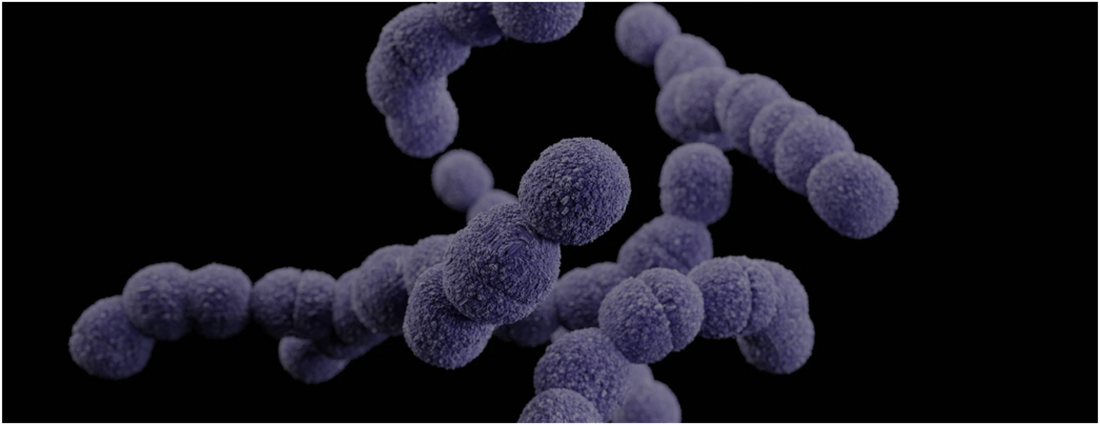A biofilm is a formation of many types of bacteria with a protective layer.
Wherever any surface comes into contact with water, a biofilm is formed. This is a thin, slimy layer of micro-organisms, made up of up to 700 species of bacteria, yeasts and fungi. Bacteria naturally seek to attach themselves to the surface, form a community and continue to multiply. When this community reaches a certain size, it forms a matrix of extracellular polysaccharide materials (EPS) and a protective layer that acts as a barrier against external threats.
After contact with water, the micro-organisms need only 8-10 hours to form a biofilm on any surface, including medical devices, water systems and the human body. Although biofilms are a natural part of our environment, when they form on or inside our bodies they can cause serious health problems. Biofilms form wherever there is sufficient moisture.
Why are biofilms dangerous?
Biofilms are the main cause of 80% of all infections. They are also resistant to antibiotics.
Individual bacteria may not be dangerous because antibiotics or conventional disinfectants can easily kill them. However, when bacteria form a community and create an impermeable EPS matrix, they become resistant to antibiotics.
In addition, bacteria in a protected community share nutrients and defence genes, which increases their resistance to antibiotics. Such bacteria can withstand doses of antibiotics as high as 500-5000 times higher. They also produce harmful proteins, enzymes and virulence factors to evade the body's defences.
Biofilms can form on various surfaces of the body and cause serious chronic diseases. Biofilms have been found to cause chronic sinus infections or even cystic fibrosis.
Biofilm formation on medical devices such as catheters, artificial joints or pacemakers can lead to serious infections, which usually require repeated surgeries.
How does biofilm affect oral health?
According to the WHO, more than 3.5 billion people suffer from oral diseases.
The formation of biofilms in the oral cavity can be harmful for several reasons. They can form on any surface, including teeth, gums, fillings, bridges or dentures. Biofilms cause dental inflammation, tooth decay and periodontal disease. As a by-product of metabolism, biofilm-forming bacteria produce acid, which can demineralise tooth enamel and cause tooth decay.
Plaque (biofilms) and tartar (hardened plaque) are the main causes of oral diseases, as they are usually formed in small and tight spaces between the teeth and gums that cannot be reached by any mechanical, electric, ultrasonic or sonic brushes. Many people are not aware that
Regular check-ups, good oral hygiene and professional brushing can help control biofilm formation and prevent oral health problems. "TROMATZ® technology helps to address the root cause rather than the symptoms, i.e. removing biofilm before it becomes harmful.

